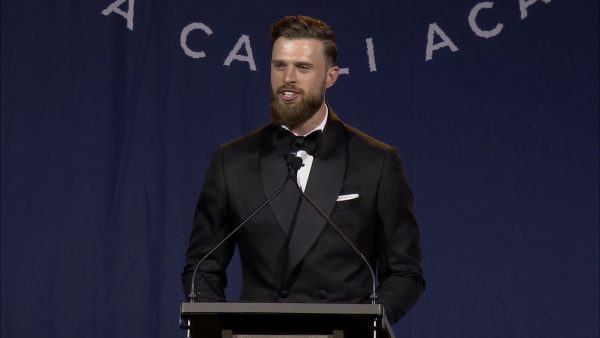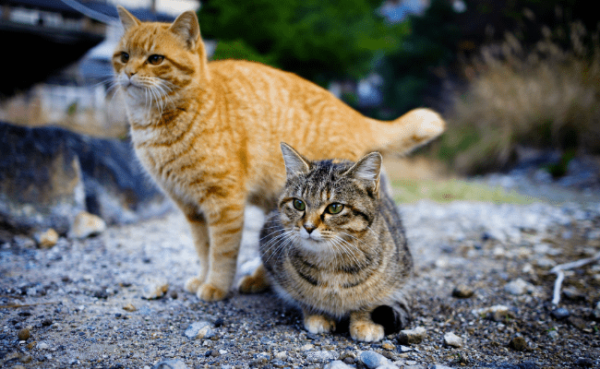The Hidden Truth Behind Reality T.V. Dating Shows

January 24, 2023
TW: body dysmorphia, EDs, children
The Hidden Truth Behind Reality T.V. Dating Shows
Whether it’s Married At First Sight, Too Hot To Handle, 90 Day Fiance, Love Is Blind, The Ultimatum, The Bachelor, Love Island (and many, many more), we’ve all watched at least one– and whether we like them or not, there’s a few things we need to address.
Beginning in the 1990s and then gaining popularity in the early 2000s, reality T.V. shows have become an undeniably popular source of entertainment. By starting fashion trends, popularizing words and phrases, and (occasionally) drawing attention to current social issues, reality T.V. has acted as a form of escapism through the drama, tears, and smiles we see on the television screen. And although we all love a good episode of The Bachelor, there are some issues embedded in these programs that often follow ordinary people navigating different situations. Let’s take a look into why many of these dating shows take the “real” out of “reality T.V.”.
The process of making connections and falling in love is condensed into just weeks
Have you ever witnessed somebody you know meet somebody, begin dating, and fall in love all within a matter of weeks? It seems like something that occasionally happens, but isn’t exactly normalized when talking about relationships. In many of these realities T.V. dating shows, strangers are introduced, talk, “fall in love”, and are sometimes even engaged (Love is Blind) in a matter of weeks! With such little time to witness the contestants character and demeanor, our understanding is condensed to the short character development we were able to witness, or the short, 30 second introductory clip of each contestant.
Oftentime, healthy relationships (keyword: healthy) involve time, patience, communication, and honesty; all aspects that are challenged within the first few days of many of these dating show experiences. With such little time, and so many outside affects, Contestants’ of dating shows are pressured to conceal their authenticity.Imagine you’re in an intimate setting, laughing with friends over an inside joke or personal story that was shared. Now imagine this: lights, cameras, mics, and a full television crew appear around you, and you’re informed that from this point on, everything you do will be broadcasted to the nation on live television. I know that personally, I would be more careful in how I present myself. From the various social media platforms that these contestants are on, they seem to possess more reality, and personality than in the shows. Not to mention the possibility that parts of these shows (namely the drama) are scripted– which takes some reality out of reality T.V.
Unqualified ‘therapists’ guide many dating shows.
This ones a shorter one, but Several of these dating shows are guided by a host, robot, or narrator who we never see, but leads us through the storyline. While they do a brilliant job of keeping us engaged, they also do a great job of giving unsupported, and unqualified advice. Although many of the comments they give are small and inconsequential, they are the ones who have the most control over the show’s tone, and can therefore influence the viewers beliefs as they watch. If the narrator says something that has an underlying tone of gender-stereotyping (sexism), the viewer is presumably going to follow along with it– especially happy music, and a lighthearted remark follows.
These unqualified therapists are not only responsible for the time of the show, but can affect the actual contestants’ ways of thinking– something that can be harmful to them. For example, if the host gives relationship advice on a show, the couples on that show are likely to listen, because it is the host! Even if the host is in a healthy relationship, unless they have a degree in couples counseling, I’m not so sure it’s safe to trust them. Also, this is primarily an issue in the script that they follow, and not the host themselves– but nonetheless important to watch out for next time you’re binging Love Island or 90 Day Fiance!
Body dysmorphia in young people can be fueled by dating shows.
After binging a few reality T.V. dating myself, I noticed something that stuck out to me: many of the contestants are rarely to never shown eating, and if they do consume something, it’s usually alcohol or water. Now, while part of this is clearly to lessen the chewing sounds picked up by the mics, and increase the talk about friendships, love, or relationships, it seems strange that the contestants are drinking water or raising a toast to something, but never shown eating. Although this could be primarily for the filming of the shows, it definitely takes the reality out of “reality T.V.” – because in real life people eat food throughout the day.
This potentially could lead to the subsequent issue of body dysmorphia and eating disorders. While many shows have improved their inclusion of diverse bodies, embracing the fact that all bodies are beautiful, many popular ones have not. The issue arises with a show’s title, as well as failure to incorporate different body types. The show “Too Hot To Handle” supports this idea, because by only choosing extremely fit candidates, and then having their show name be “Too Hot To Handle”, it seemingly implies that in order to be hot, or “too hot to handle”, for that matter, you must have those physical traits. Also, many of these shows go a step further, and emphasize physical appearance over personality traits. Men’s main compliments only focus on the specific physical traits of one of the women, and many of the comments women make are about certain physical characteristics of the men.
Gender-stereotypical behaviors are encouraged by dating shows.
While gender stereotypes can be found in advertisements, education, and day-to-day life, they are also present in that reality T.V. dating show you just sat down to watch! Gender stereotypes, the generalized conceptions regarding men and women strictly based on gender, make up much of these shows. Sometimes it’s brief discussion between “the guys” expressing their concern for their partner’s disinterest in settling down to raise kids/cook/clean, the overly dramatic narration and suspense when a woman stands up for herself against a man, or the activities that further gender-stereotypes within the show. Having a “girls cocktail night” and “boys weightlifting contest”, a makeup/reading room only filmed when in use by “the girls” or “the ladies”, and overall perpetuating these harmful stereotypes.
Along these lines, many of the currently trending dating shows fail to represent LGBTQIA+ relationships. Many of these shows respond overdramatically to occasions such as two girls kissing, or jokingly denounce any emotional connection between guys by using vocabulary like “bromance” . By excessively emphasizing these instances, these shows build on the idea that they are rare, or strange– which could understandably be seen as borderline homophobia. In summary, many of these dating shows discredit emotional connections between people who identify as that of the same gender identity or pronouns, failing to represent asexuality, and enforcing gender-stereotypical behaviors.
Most dating shows insinuate that marriage is a main goal in life.
This may come as a surprise to you, but the concept of marriage can in some ways be seen as outdated: it’s both sexist and racist. The institution of marriage began as a business alliance made by men, to benefit men. Traditions, like the father of the bride “giving her away”, or the bride’s attainment of the groom’s last name reflected womans’ position as property, in a transfer of ownership from the bride’s father to her husband. It doesn’t end there though, initially, marriage was a privilege enjoyed by white people in the U.S. Black people weren’t granted marriage rights until after the Civil War. More specifically, it was the Civil Rights Act of 1866 that protected and granted U.S. citizenship (including marriage rights) to all people “without distinction of race or color, or previous condition of slavery or involuntary servitude”. Not to mention, interracial marriage in the U.S. was a felony up until its’ legalization in 1967 (and yes, underlying prejudices towards interracial marriages still exist *England’s response to Megan and Prince Harry’s marriage*).
Another surprise for you: marriage doesn’t always have to be the end goal. Marriage has become less important in modern societies for a number of reasons; not feeling inclined to marry to legitimize a relationship, the cost of marriage, desire to focus on a career, fear of divorce rates, preference for non monogamy, preference for casual relationships, or simply the view of marriage as a patriarchal institution. The most recent data from the CDC’s National Center for Health Statistics displays marriage rates reaching an all time low in 2018 (6.9 to 6.5 per 1000 people), and continuing to progress downward. Much of Gen-Z has been raised under the belief system that happiness stems from attending college, falling in love, getting married, buying a house, or having children. In order to progress as a society, we must address the outdated complexion of this so-called “American Dream”, and realize that happiness is a diverse and fluctuating conceptualization that varies based on the individual.
Whether it’s the limited time period of these shows, unqualified therapists “helping” the contestants, feuling of body dysmorphia in younger viewers, gender stereotypes enforced, , failure to represent LGBTQIA+ relationships, or dated traditional beliefs present, reality T.V. dating shows frequently promote a toxic view on love, and often fail to represent healthy relationships.








